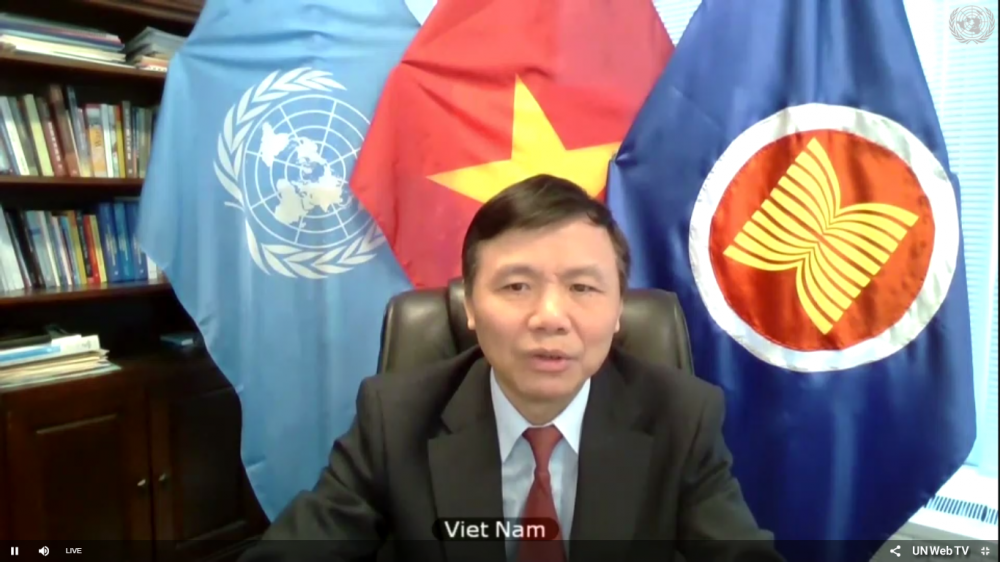
Viet Nam appeals for enhanced efforts to address conflict-driven hunger
Latest
 |
| Vietnamese Ambassador Dang Dinh Quy. |
In his remarks at the teleconferenced debate, UN Secretary-General Antonio Guterres said: “Famine and hunger are no longer about lack of food. They are now largely man-made — and I use the term deliberately. They are concentrated in countries affected by large-scale, protracted conflict. And they are rising.”
Climate shocks and the COVID-19 pandemic are adding fuel to the flames, he said, citing data as showing that at the end of 2020, more than 88 million people were suffering from acute hunger due to conflict and instability, a 20-percent increase in one year.
Guterres appealed to all UNSC members to take urgent action and increase humanitarian aid.
The Secretary-General also voiced concern over the targeting of aid workers, including the killing of Italian Ambassador to the Democratic Republic of Congo Moustapha Milambo.
He said he has decided to establish a high-level task force on preventing famine, and that the transformation of food systems to make them more inclusive, resilient and sustainable will be one of the key issues of the Food Systems Summit to be held later this year.
David Beasley, Executive Director of the World Food Programme, warned about a hunger pandemic besides the COVID-19 pandemic, describing children as the most vulnerable in these disasters.
At the debate, UNSC member states called on the parties involved in conflicts to comply with the International Humanitarian Law, create conditions for humanitarian organisations’ unimpeded access to civilians, and increase sponsorship commitments to food and humanitarian assistance programmes.
They affirmed that sustainable development and conflict settlement and eradication form comprehensive and long-term solutions.
For his part, Ambassador Dang Dinh Quy, Permanent Representative of Viet Nam to the UN, said the UNSC needs to enhance efforts to address conflict-driven hunger.
He called on countries, international and regional organisations, as well as sponsors, to maintain contributions to humanitarian aid programmes while assisting countries to boost the capacity of protecting and meeting essential needs of people and build sustainable food systems to enable people’s access to safe and nutritious food.
The UN should have all-round solutions that focus on preventing and ending conflict and building sustainable peace, solve root causes of conflict, and promote regional organisations’ role in maintaining peace and settling the conflict in their regions, the diplomat suggested.
In Resolution 2417 (2017), the UNSC affirmed that armed conflict and violence are a major cause of famine.
Since the beginning of 2020, the council has held two meetings on the risks of conflict-driven hunger in such countries as Yemen, South Sudan, Nigeria, the Democratic Republic of Congo, Somalia, and Afghanistan.












